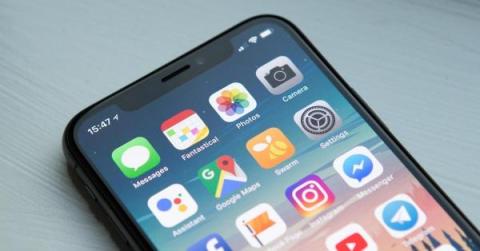Security | Threat Detection | Cyberattacks | DevSecOps | Compliance
Lookout
Top Mobile App Security Risks: From Risky Behavior to Hidden Malicious Code
In recent years, especially with hybrid work, almost everyone uses an iOS or Android device for work. In fact, in a recent survey, Lookout found that 92% of remote workers use their personal laptops or smartphones for work tasks, with 46% of them having saved files onto their devices. Now that employees expect to be productive from anywhere, organizations across all industries have become more relaxed with allowing the use of personal devices with bring-your-own-device (BYOD) programs.
Your Data is Mobile, Your Security Should Be Too
Lookout Discovers Android Spyware Tied to Iranian Police Targeting Minorities: BouldSpy
Researchers at the Lookout Threat Lab have discovered a new Android surveillance tool which we attribute with moderate confidence to the Law Enforcement Command of the Islamic Republic of Iran (FARAJA). Named BouldSpy for the “BoulderApplication” class which configures the tool’s command and control (C2), we have been tracking the spyware since March 2020.
The Work-Life Mix-up: How to Stay Secure in the Hybrid Work Era
Remote work is no longer a trend — in 2022, remote workers represented 30% of the overall workforce. Cloud services and mobile devices have made the work environment more flexible, and organizations have implemented bring-your-own-device (BYOD) policies to enable employees who are working from anywhere to get more done.
BYOD Increases Mobile Phishing Rates, and the Risks Have Never Been Higher
Stolen employee login credentials are one of the most effective ways for bad actors to infiltrate your organization’s infrastructure. Once they have the login information of one of your accounts in hand, it becomes much easier for them to bypass security measures and gain access to your sensitive data. So how do attackers get those login credentials? The answer in many cases is mobile phishing.
Keep Your Data Protected from Adversarial States and Governments
Lookout Reimagined: The Freedom of Control
A company’s brand is more than just its logo and color palette. It’s a signal to the world about their vision and commitment. This is why I’m super excited that Lookout is debuting a reimagined identity and position centered around freedom of control. Lookout started its journey in 2007 trailblazing the concept of mobile security.











